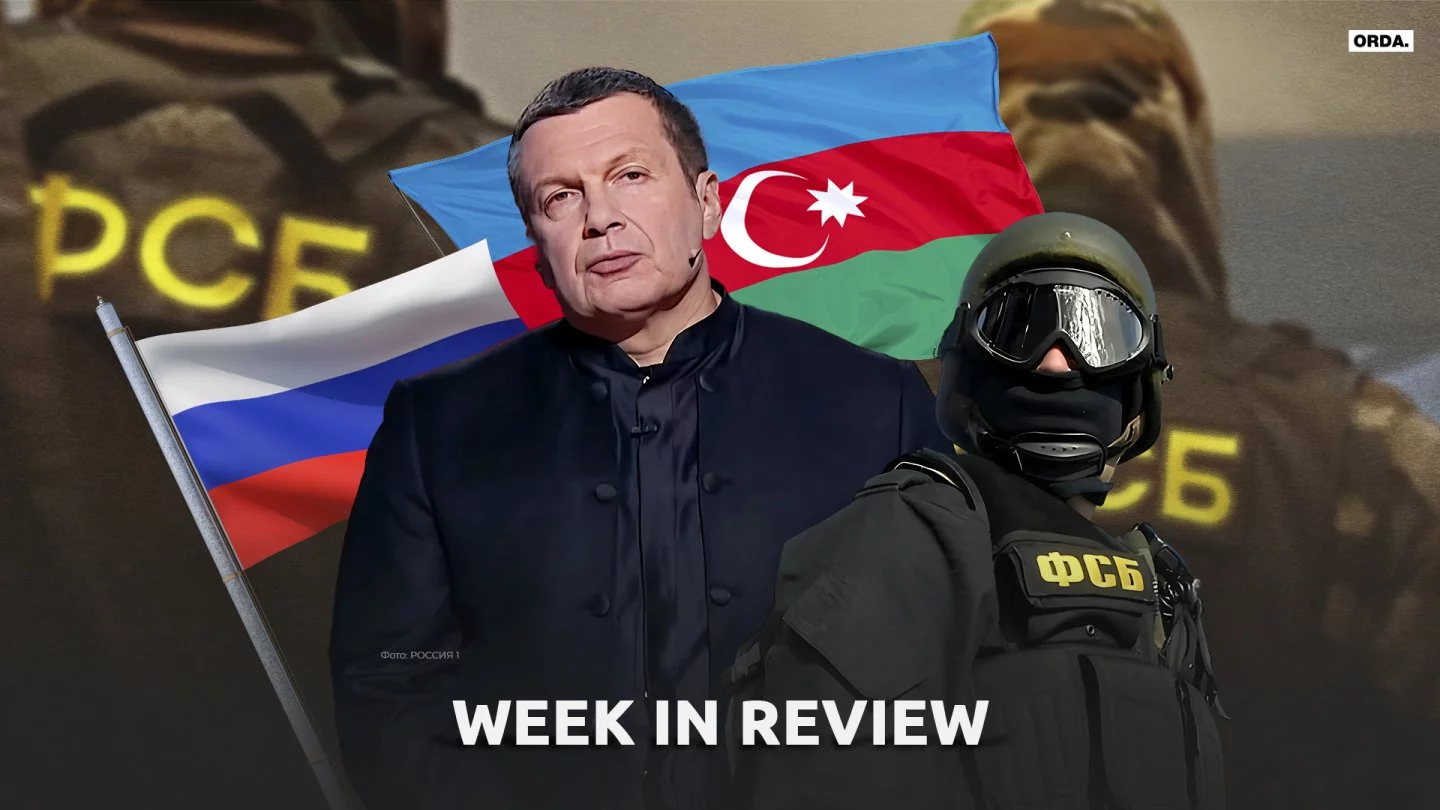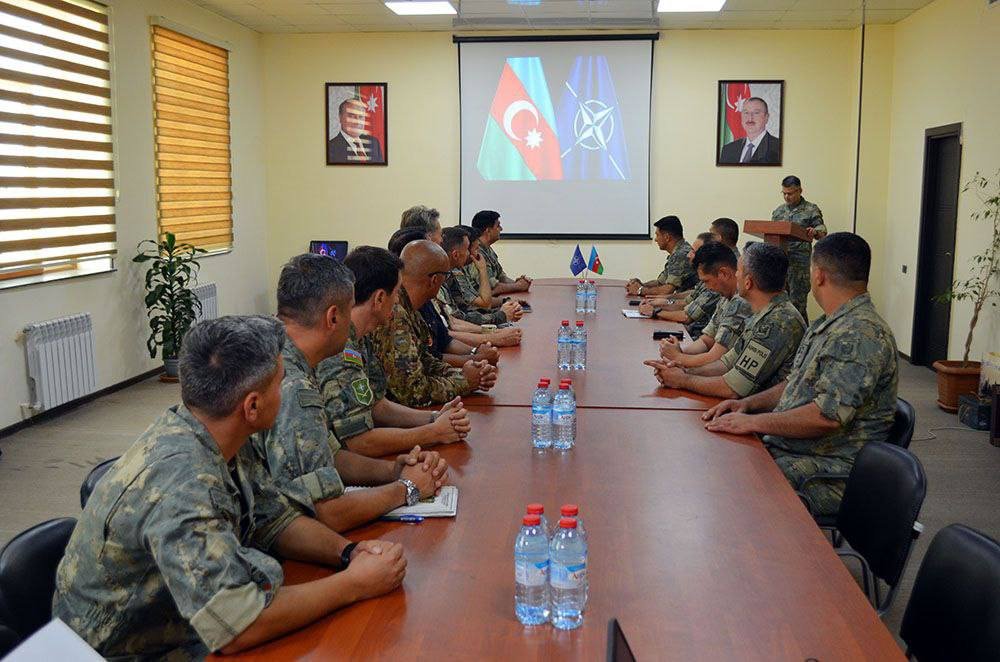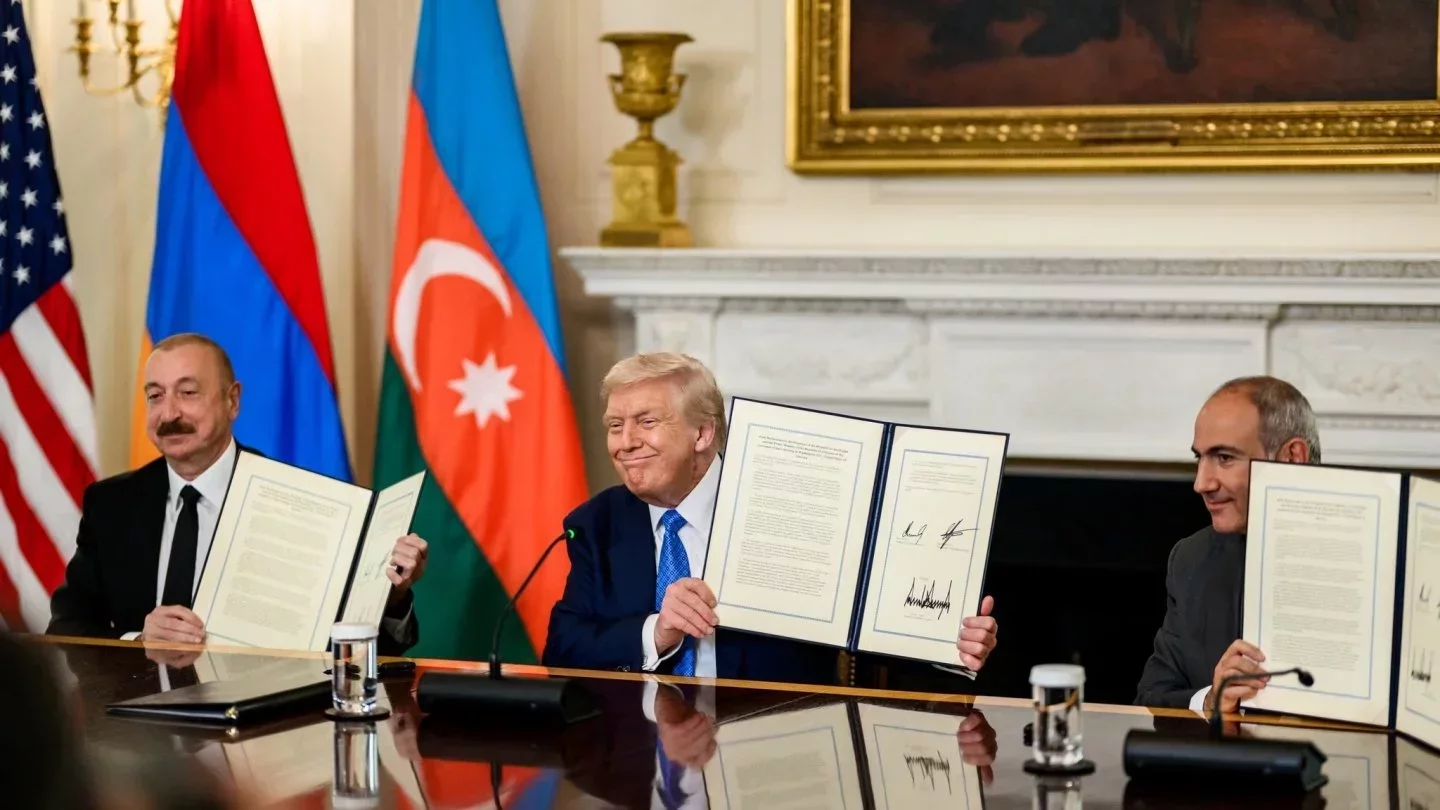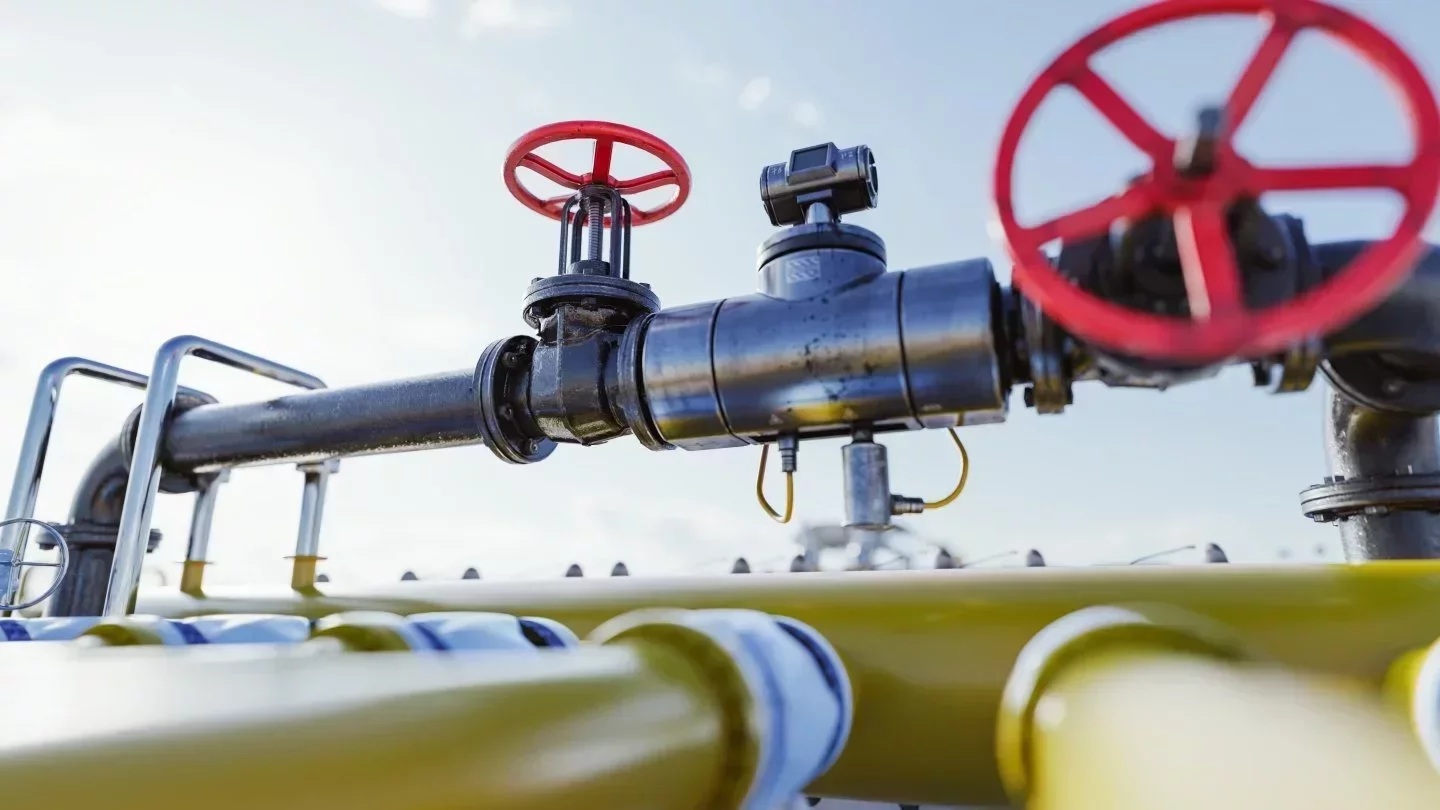Week In Review: Border Arrests, Escalations, and More....
 Photo: Orda Collage
Photo: Orda Collage
Orda.kz has put together a brief synopsis of last week's news. This edition focuses on Russia and Azerbaijan.
Escalation After Escalation
Reports surfaced on August 21 that Russian special services detained Yadulla Ramiz oglu Rufullaev at the Russian–Azerbaijani border crossing of Yarag-Kazmalyar in Dagestan. Rufullaev’s citizenship was not officially confirmed; some reports identify him as Azerbaijani, but this remains unverified.
The man is accused of working with Ukraine’s Security Service (SBU). According to the FSB, he had removed documents and a mobile phone from a cache in the Kurgan region on instructions from his brother in Ukraine, with the intent to transfer them across the border.
Following the reports, Vot Tak journalists unsuccessfully attempted to establish the identities of the man's relatives via open sources, raising questions about the timing — relations between Baku and Moscow have been steadily deteriorating.
Meanwhile, on August 6, Russian drones struck the Orlovka gas compressor station in the Odesa region, which channels Azerbaijani gas into Ukraine. Two days later, drones hit a SOCAR oil depot in the same region. A second, more powerful strike followed shortly after, damaging all 17 storage tanks and auxiliary equipment.
Incidentally, the strikes followed Ukraine's deal for Azerbaijani gas imports.
President Ilham Aliyev accused Moscow of deliberate attacks on Azerbaijani energy infrastructure, and Moscow responded to subsequent reports that Baku may lift an arms export ban for Ukraine, stating that Azerbaijan is aware of the Kremlin's position.
Salt To The Wound
As tensions escalated, Baku delivered a new batch of humanitarian aid to Ukraine, sparking a response from Russian propagandists.
Vladimir Solovyov again threatened a ‘special military operation’ against Azerbaijan amid rising geopolitical tensions in the South Caucasus, warning of NATO bases in the Caspian as a provocation.
Solovyov also questioned Azerbaijan’s territorial integrity by spotlighting the plight of Lezgins, a minority group, on air — and notably asked, "Who said the borders of Azerbaijan are inviolable?" At the same time, Russian deputy Andrey Gurulev called for restrictions on Azerbaijani imports and also hinted at a special military operation.
The rhetoric was mostly dismissed, and the pro-state media Caliber published an article highlighting Azerbaijan's military victories, a clear reference to Nagorno-Karabakh, where Russian peacekeepers proved ineffective.
Back home, Russian authorities appeared to have drawn red lines for those stepping out of line amid the tensions.
Political analyst Sergey Markov, who earlier drew fire from pro-war bloggers for praising Azerbaijani President Ilham Aliyev during a visit to Baku, has now been added to Russia’s “foreign agents” register despite his long record of supporting Kremlin policies.
Against that backdrop, both sides have tightened scrutiny of each other’s nationals, including high-profile detentions, an entry ban on an Azerbaijani cultural figure, migration checks, and Russian law enforcement purportedly targeting ethnic Azerbaijanis with Russian citizenship — underscoring the deteriorating climate.
Meanwhile, the Azerbaijani navy conducted live-fire drills in the Caspian Sea, focused on protecting offshore energy infrastructure.
Azerbaijan also hosted a NATO delegation.
Although the training and meeting with NATO representatives were planned, the former remains a power projection, while the latter is a demonstration of Baku's unwavering agency, as Moscow sees any such NATO interaction as a challenge to its regional dominance.

Amid this climate, President Aliyev’s own rhetoric has added notable weight.
Only weeks earlier, in a July speech concerning the December 2024 AZAL plane crash, Aliyev urged Ukrainians not to accept territorial losses and to follow Azerbaijan’s example in reclaiming land:
All our arguments about international law, about the four UN Security Council resolutions demanding Armenian troop withdrawal — all of it was met with arrogant advice to accept the realities. So we decided to create new realities.
In his more recent Fox News interview, however, he seemed to soften this tone regarding the incident, stating that there was no intention.
Still, he stressed demands for accountability and compensation, and with the recent attacks on SOCAR facilities and the above incendiary statements, Aliyev may eventually revive his previous rhetoric. Notably, Aliyev publicly committed to continuing humanitarian support for Ukraine.
Let By-Gones Be By-Gones?
Despite souring relations, official data show trade turnover between Russia and Azerbaijan growing 16 percent year-on-year in early 2025, and the two nations held the 23rd session of the Intergovernmental Commission on Economic Cooperation in Astrakhan, according to Azerbaijan’s embassy in Moscow.
The event came after the June cancellation of the 23rd session of the interparliamentary commission with Russia’s Federal Assembly and marked the two nations' first such contact since.
Azerbaijani Foreign Minister Jeyhun Bayramov and Russian Foreign Minister Sergey Lavrov held subsequent phone talks, discussing political, economic, and humanitarian cooperation, regional security, and the successful outcomes of the commission meeting in Astrakhan.
Regardless, diplomacy, viewed as a key component of Moscow's regional involvement, advanced without it. Armenia and Azerbaijan signed a U.S.-brokered declaration in Washington concerning a peace treaty, dissolving the OSCE Minsk Group, and opening transit to Nakhichevan through Armenia.

However, durability is still unclear. Demands for constitutional changes in Armenia and corridor disputes are examples of remaining obstacles to a final agreement.
The risk of escalation has still notably fallen, and organizations pushing the idea of "West Azerbaijan," a term used to question sovereign Armenian territory, are to be disbanded.
While being noticeably sidelined, Russia has welcomed the opening of communications via Armenia, and Azerbaijan remains a vital link in its "North-South Corridor" project, aimed at rivaling traditional Western routes.
Energy ties add another layer. Russian oil giant Lukoil, for example, holds nearly 20% of Azerbaijan's strategic Shah Deniz gas field, set for expansion and a cornerstone of the Southern Gas Corridor, which supplies Türkiye and Europe.

Brussels sees the corridor as essential to sustaining diversification away from Russian gas.
At the same time, speculation circulated that Russia could re-export its gas to Europe by relabeling it as Azerbaijani, though Official Baku has dismissed the claims. Ukraine has also strongly opposed such "swaps," ending Russian gas exports via its territory.
Limited gas imports from Russia can allow Baku to free up some volumes to be sent westward. Still, the amounts, much like those that would travel via Ukraine, remain marginal. And Azerbaijan risks falling short of its commitments to Europe, potentially leaving a window open for Moscow.
Brussels has rejected the idea, but has imported refined oil products, made from Russian crude oil, from India.
Though the chances that Europe's gas market returns to Russian dominance are slim to none — Russia's weaponization of natural resources, LNG imports, Azerbaijani and Norwegian gas, and new infrastructure are key factors — the Kremlin won't abandon the above option altogether.
Iran has also struck a deal to pipe Russian gas through Azerbaijan. While this could give Baku leverage, analysts believe this is more of a showcase of the Iran-Russian strategic partnership with little economic logic.
Given the political atmosphere, Baku will be disinclined to increase reliance, even marginally, on Russian resources for domestic supply. Turkmenistan could serve as an alternative, yet imports to Azerbaijan have reportedly plummeted.
Ashgabat is also seeking to diversify its gas exports, as evidenced by the gas supply agreement between Türkiye's BOTAŞ and Türkmengaz, reinforcing the unlikelihood of boosting already decreasing exports to Azerbaijan.
With Moscow consumed by Ukraine and Baku's calculative moves, their standoff will not escalate much beyond its current state. Yet Azerbaijan has once again underscored its role as a pivotal regional actor — especially in energy and transit — one that Russia cannot ignore, considering its waning influence in the South Caucasus.
Latest news
- Snow and Frost: Weather Forecast for February 15
- Tokayev congratulates Serbia’s President Vucic on Statehood Day
- Mikhail Shaidorov Wins Kazakhstan’s First Winter Olympic Gold Since 1994
- Indian Crested Porcupines Spotted by Camera Trap in Ile-Alatau National Park
- Kazakhstan’s Air Pollution Isn’t Driven by Factories — Ministry of Ecology
- How the US Views Kazakhstan’s Constitutional Reform and Free Speech
- US Ambassador to Kazakhstan: Visa Restrictions for Kazakhstanis Are a Temporary Measure
- China-to-Russia Shipments Are Increasingly Bypassing Kazakhstan
- Shokan Ualikhanov Private School Reclassified as Large Business After Staff Tops 250
- Former Priest Yakov Vorontsov Reportedly Detained in Kazakhstan
- Kazakhstan Proposes Differentiated Toll Rates for Transit Foreign Drivers
- World Bank Ready to Provide Kazakhstan Up to $1 Billion a Year for Six Years
- Woman Forced to Move and Change Jobs Repeatedly as Ex-Husband Stalked Her
- Kazakhstanis Are Getting Married Less Often
- Why Online Voting Isn’t Coming for the 2026 Referendum
- Mephedrone lab network uncovered in Almaty’s private houses
- Kazakhstan’s Domestic Trade Slows in January
- A Man Spent Six Months in Jail for Nothing — Court Awards Millions from the State
- Over 100M Tenge in Budget Money Allegedly Spent on Gambling in West Kazakhstan
- Nationwide Measles Surge: Nearly 2,000 Cases Since the Start of the Year

